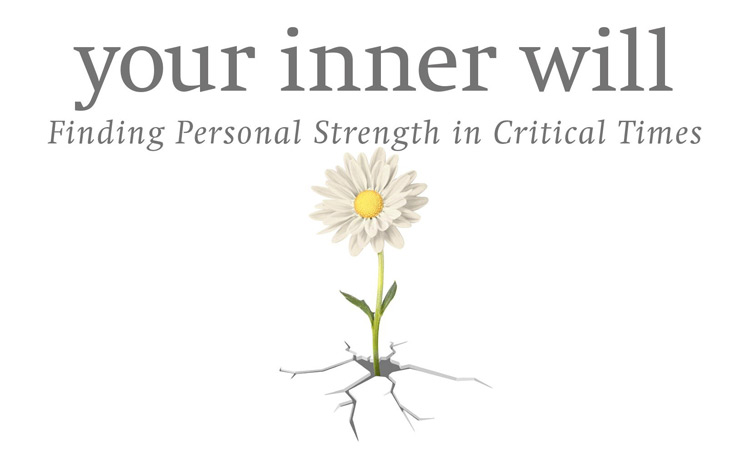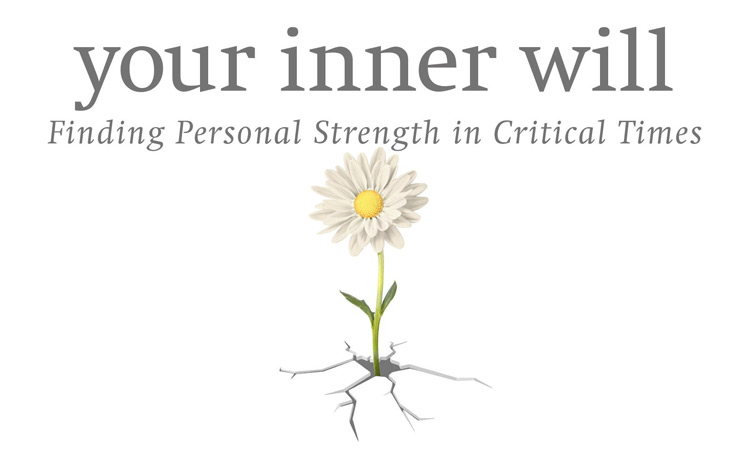 Most of us struggle with a personal crisis at some point in our lifetime. Losing someone we love, struggling through a painful divorce, or suffering with depression. Whatever the challenge, these periods of crisis provide us the opportunity to find our inner strength, learn to let go and move on.
Most of us struggle with a personal crisis at some point in our lifetime. Losing someone we love, struggling through a painful divorce, or suffering with depression. Whatever the challenge, these periods of crisis provide us the opportunity to find our inner strength, learn to let go and move on.
In Your Inner Will by Piero Ferrucci, he provides valuable and enriching insights into overcoming major setbacks and difficult challenges using classical mythology, neuroscience research, and psychological studies. In the moments where we feel most weak and vulnerable, Ferrucci explains how to rely on our inner will to guide us; to find ways not only to cope, but also to move forward with passion and purpose.
Here’s one of my favorite parts of the book where Ferrucci explains the beneficial rewards when we focus our undivided attention.
This is depth: the capacity to enter a subject and find in it a whole universe. It is the same for every subject. For instance, you can use music as a ring tone for a cell phone or whistle it absentmindedly. You can listen to it attentively. You can master it through study, and play it on an instrument. You can perform it before an audience. You can explore it in its huge, perhaps infinite, richness of meaning and nuance.
It may not be easy to practice depth. Our mind wanders: that is its nature. This tendency is accentuated by the hurried and distracted times we live in. A farmer in the Middle Ages may have had to struggle with famine, invasions, exploitation, or drought. But his life was simple, with few factors at play. People in the twenty-first century are in another condition altogether. We are more protected materially (in the wealthier societies). But the world we inhabit is vastly more complex. Every day a profusion of stimuli reaches us. The electronic messages we receive and send keep us busy. The pace is ever faster, duties more numerous. Our mind must tackle not only our own predicament, but also the difficulties and anguish of the world: an earthquake in Turkey or a flood in the Pacific basin, a financial crisis or a new global virus, climate change or youth unemployment. At the same time we are enticed by countless promises of pleasure: food, elegance, technology, sex.
We are invaded, confused, distracted. A well-known study shows that if people at the entrance of a supermarket are offered three free samples of jam of brand X, they are more likely to buy that same brand of jam later. If they are instead offered a choice among twenty-four free samples, the persuasive strength is much lower, because the potential buyers are confused and overstimulated. We find the same happens with children. Show them three toys, and they will know what to choose: but offer them twenty-four, and they grow restless. These experiments symbolize the human condition in our century. Because we are surrounded by an overabundance of stimuli, we become restless and scattered. Ultimately this state becomes a way of being, so that it is no longer seen as a discomfort, but taken for granted because it is common and universally shared. It is the constant background to our every thought and action.
Yet depth is also a strength. Ferrucci writes:
To be deep, we must resist intimidation or distraction. We must go through boredom and insecurity, preserve our motivation, and tolerate emptiness—all without being sidetracked or discouraged. Only then will our relationship disclose its beauty; only then will the subject we are studying show us its richness of meaning; only then will the project we have begun—whether it’s preparing for a holiday or writing a symphony—start to bear fruits.
Depth is a quality that is hard to define or quantify. In it there is a healthy dose of persistence and passion and the capacity for not giving up when the going gets rough. It involves every aspect of our existence: work, relationships, intellectual and spiritual life. To have a unifying center in our life has a beneficial effect, because it organizes all the components of our psyche, which would otherwise be dissipated chaotically. As when a magnet, placed over iron filings, creates orderly patterns, so does a unifying center give cohesion and strength to our personality. In a disorderly and distracted psyche, pathology can much more easily put down roots. Often the most effective remedy for depression, anxiety, obsessions, and phobias, is not reached through elaborate techniques, but in pursuing a strong interest that can act as unifying theme. Depth heals us and regenerates us. Superficiality, scatteredness and emptiness, instead, open the doors to pathology. In working with my psychotherapy clients, I have ascertained time and again that to immerse ourselves in a new project—doing volunteer work, learning to play a musical instrument, starting a commercial activity, a new relationship, even simply reading a book—can have far more beneficial effects than some specific medicine or technique.
The secret is just that: instead of skimming the surface, we dig deep. When we find stones, we do not stop there. Continuing to dig, we will discover the vein of gold.
Piero Ferrucci is a philosopher and psychotherapist. He practices psychosynthesis and lives in Florence, Italy. He has written a number of books, including The Power of Kindness, Beauty and the Soul, and most recently Your Inner Will: Finding Personal Strength in Critical Times (Tarcher Penguin).
To find out more about Rose’s thoughts on how to live a happier life, click here

Rose Caiola
Inspired. Rewired.



1 Comment
Savannah
I think this is a book everyone should read because sooner or later we all experience critical times and sometimes no one can help you but yourself. I’m definitely going to get this book. Thanks for recommending and writing such a r=great review on it!